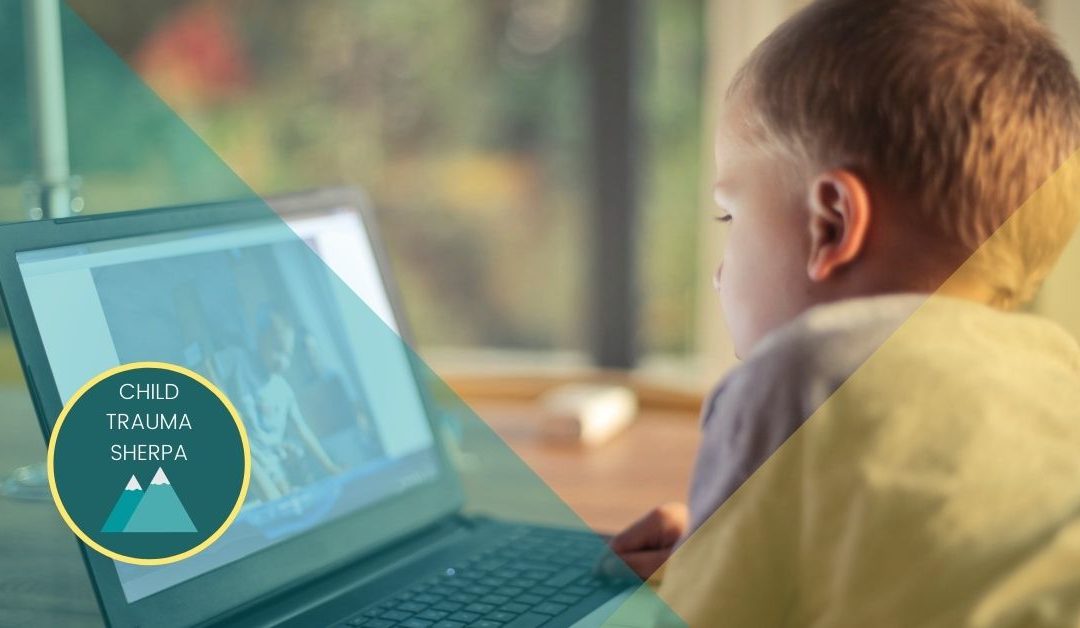And What it Does Not Mean; Plus Treating Childhood Trauma
Adverse Childhood Experiences (ACEs) are traumatic experiences during childhood. These adverse experiences can include neglect, abandonment, emotional abuse and physical abuse. The more trauma a child experiences, the more likely they are to develop psychological and health problems.
Types of ACEs
There are three types of ACEs that a child can experience. These include:
- Abuse (physical, emotional, sexual)
- Neglect (physical, emotional)
- And household dysfunction (mental illness, incarcerated relative, mother treated violently, substance abuse, divorce)
The ACE Test
There are 10 questions about traumatic experiences that are generally on most ACE tests or quizzes. For each question on the quiz below, give 1 point for each experience your child has suffered from.
Before your 18th birthday, did a parent or other adult in the household often or very often…
- Swear at you, insult you, put you down or humiliate you? Or act in a way that made you afraid that you might be physically hurt?
- Push, grab, slap or throw something at you? Or ever hit you so hard that you had marks or were injured?
- Touch or fondle you or have you touch their body in a sexual way? Or attempt or actually have oral, anal or vaginal intercourse with you?
Before your 18th birthday, did you often or very often feel that…
- No one in your family loved you or thought you were important or special? Or your family didn’t look out for each other, feel close to each other or support each other?
- You didn’t have enough to eat, had to wear dirty clothes and had no one to protect you? Or your parents were too drunk or high to take care of you or take you to the doctor if you needed it?
Before your 18th birthday…
- Was a biological parent ever lost to you through divorce, abandonment or other reason?
- Was your mother or stepmother often or very often pushed, grabbed, slapped or had something thrown at her? Or was she sometimes often or very often kicked, bitten, hit with a fist or hit with something hard? Or was she ever repeatedly hit over at least a few minutes or threatened with a gun or a knife?
- Did you live with anyone who was a problem drinker or alcoholic or who used street drugs?
- Was a household member depressed or mentally ill or did a household member attempt suicide?
- Did a household member go to prison?
What An ACE Score Means
First, it is important to understand that an ACE score is just guidance. In essence, it is a sort of starting point. An ACE score does not directly take into account one’s diet, genes and other risk factors that can lead to health issues.
Second, you should also understand that ACE scores don’t account for all the positive experiences a person has had in their early life. For example, being adopted by a loving family who provides support and unconditional love or a teacher that truly believed in you even when you experienced an ACE at home can help to mitigate the long-term effects of trauma.
The Symptoms of Childhood Trauma
The symptoms and health effects of childhood trauma are wide ranging and vary from child to child. Some of the symptoms can also develop later in life if trauma is not properly treated. Often, these symptoms can include, but are not limited to:
- Aggression
- Depression
- Anxiety
- Fear
- Social isolation
- Inability to form a healthy attachment
- Eating disorders
- Substance abuse and other risky behaviors
- Lack of trust
- Sleep disturbances (insomnia, nightmares)
- Lack of physical activity
- Diabetes
- Suicidal ideation
- Heart disease
- Cancer
Treating Childhood Trauma
Each child heals in their own way and in their own time. What is most important in helping your adopted child with trauma heal is that you provide a safe environment for them where they feel loved and supported. The second most important thing that you do as a caregiver is to guide them in finding healthy ways to cope with their trauma and to provide a support system or care team that can help your child work through their trauma. This team will include family, friends, therapists, doctors, educators and more. In order for your child to succeed in healing, it is imperative that this entire team be on the same page or little to no progress will be made. When all of these things happen, you will see remarkable progress in your adopted child with trauma and they will eventually be able to live a full and productive life!


